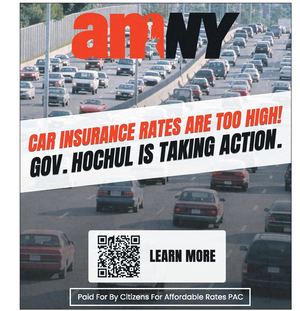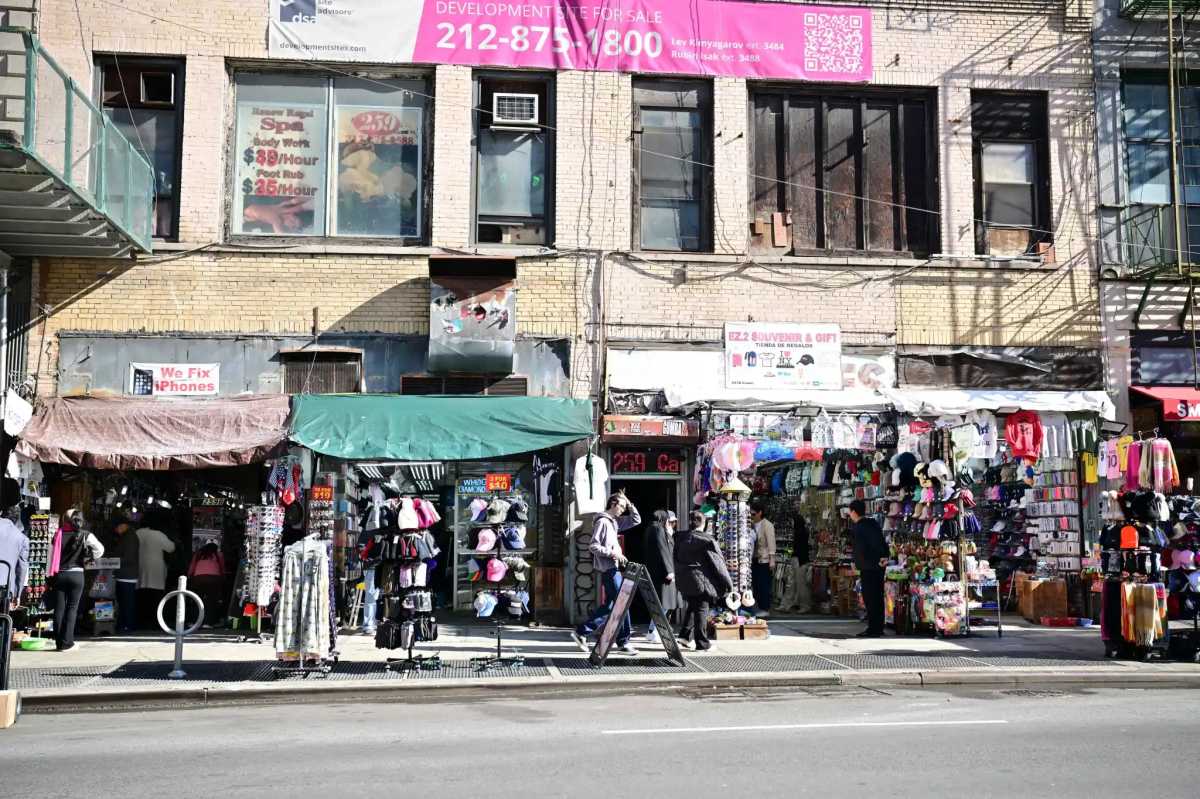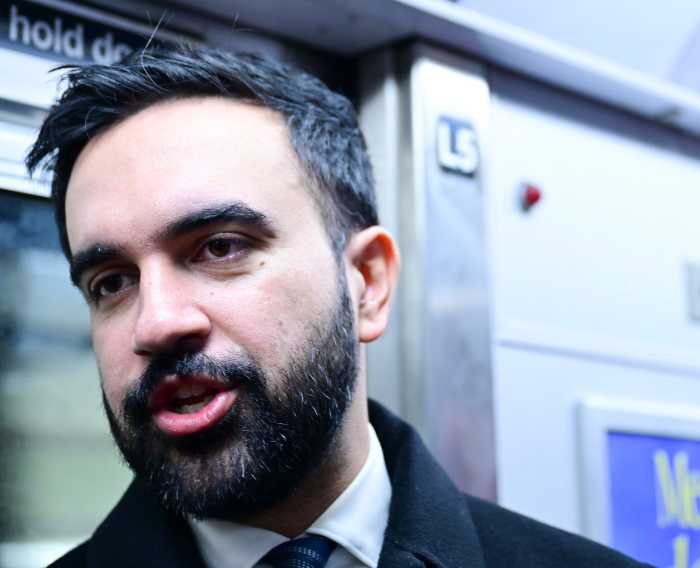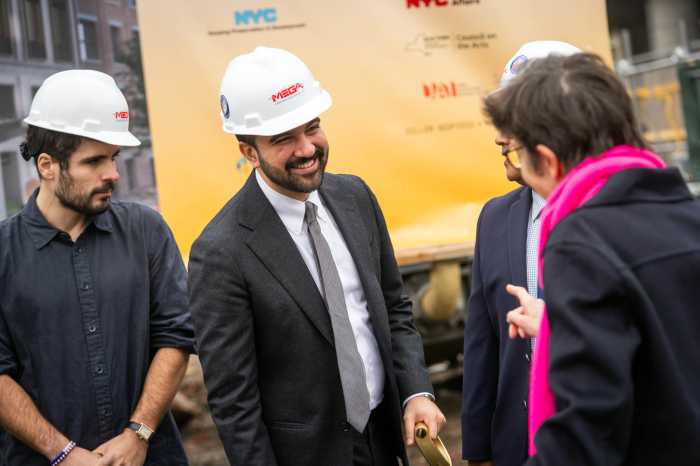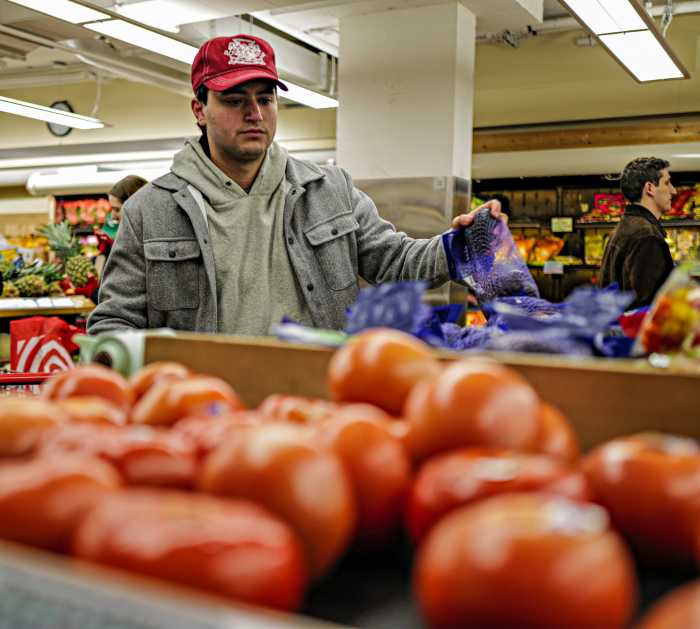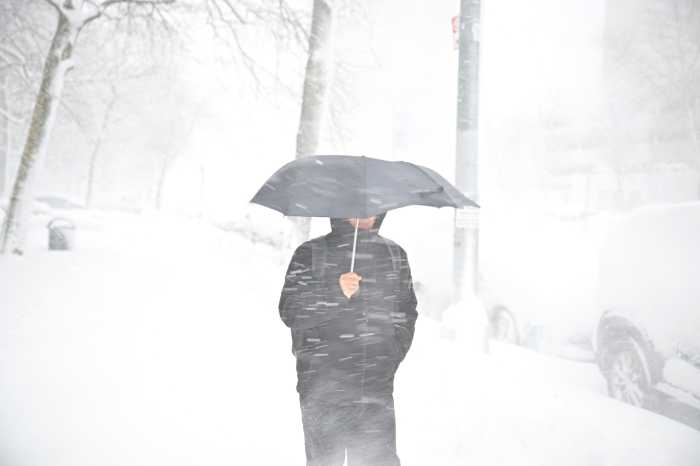With the federal crackdown on Canal Street vendors on Tuesday afternoon, the immigrant community of street vendors in Chinatown is frightened of the enforcement.
From empanadas to dumplings, the street vendors of New York City have served cuisines from all around the world to the New Yorkers for decades. The cap on vendor permits is one of the major challenges faced by this immigrant-run industry and Organizations like the Street Vendor Project, District Council members and state Senators are determined to pressure the New York City Council to address them this Fall.
The Big Apple was a portal for immigrants to chase the impossible – the American Dream in the late 1800s. Ever since the city was built, fed and run by one of the largest immigrant populations. Street vendors hold on to that legacy to date, serving diverse delicacies from all across the globe to New Yorkers on the city’s bustling streets. Today, the vulnerable identity of street vendors is under critical scrutiny.
“Some people hear immigrants and they immediately think ‘undocumented’, but there are also street vendors who’ve gained citizenship and work authorizations,” said Carina Kaufman-Gutierrez, deputy director of the Street Vendor Project.
Critics say that New York City’s system to regulate street vendors is “intentionally broken” because it has failed to meet the surplus demand for vendor permits in the waiting line. The cap on vendor permits has made it nearly impossible for vendors to actually enter the system. Since the vendor permits released every year are limited, the rest of the vendors on the waiting list are left with no choice but to approach the underground market to rent permits for a sizable amount of money.
“They are forced to operate outside the system and find a permit on the underground market, renting it for $25,000 – $30,000 in cash every two years, instead of obtaining a legal permit for $200 from the city.” Kaufman-Gutierrez said. “That money is not going to the city; it’s going to some guy in Florida, who got his permit back in the day and is making money off a broken system.”
The Street Vendor Project is a membership-run advocacy organization that provides support through translation in seven different languages, as well as legal and any other services for street vendors. Branched out of the Urban Justice Centre and staffed by 11 people, this organization has been funded previously by grants from Stavros Niarchos Foundation (SNF) and other donations and institutions.
The Street Vendor Reform Package is a series of bills within the City Council that are addressing these issues are: Intro 431 sponsored by City Council Members Pierina Sanchez and Amanda Farias aimed at increasing the access to vendor permits, Intro 408 aimed at creating a division within the department of small business services to assist street vendors, Intro 0024 sponsored by City Council Carmen N. De La Rosa, aimed at allowing vendors to place their pushcarts two feet from the curb unless there is an obstruction on the sidewalk and Intro 1251 sponsored by Farias aimed at amending the law and issuing more than 445 license applications each year.
With only five city council meetings left in this session, organizations like the Street Vendor Project are advocating and pressuring the council to pass the street vendor reform package bills. Through organizing campaigns and rallies at City Hall, the Street Vendor Project draws the attention of the public and demands action from the council. “Since the need is current, we cannot afford the luxury of waiting until next year or five years from now,” said Kaufman-Gutierrez.
While the reform package bills are instruments of advocacy on the city level, the Senate Bill (S4928), re-introduced in February 2025 by state Sen. Jessica Ramos of District 13, is designed to apply pressure on the City government “to do the right thing” from the New York State level. The current cap on vendor permits has resulted in creating a long waiting list, delaying the application process for potential vendors to gain legal permits. The Senate Bill aims to pressure the City government to lift this cap of the vendor permits released every year and thereby resolve the street vending crisis of the City. The sight of a middle-aged woman selling empanadas and coffee from the cart is familiar for New Yorkers as street vending is also home to a large group of immigrant women.
“I don’t think there’s any coincidence that the vast majority of street vendors are women, who are breadwinners for their families,” Ramos said.“We should help them formalize their businesses and maybe even eventually graduate into having a brick-and-mortar restaurant or merchandise store. We should see their spirit of entrepreneurship as an asset, not a challenge.”
Ramos said she was motivated to sponsor this bill from the need to protect street vendors.
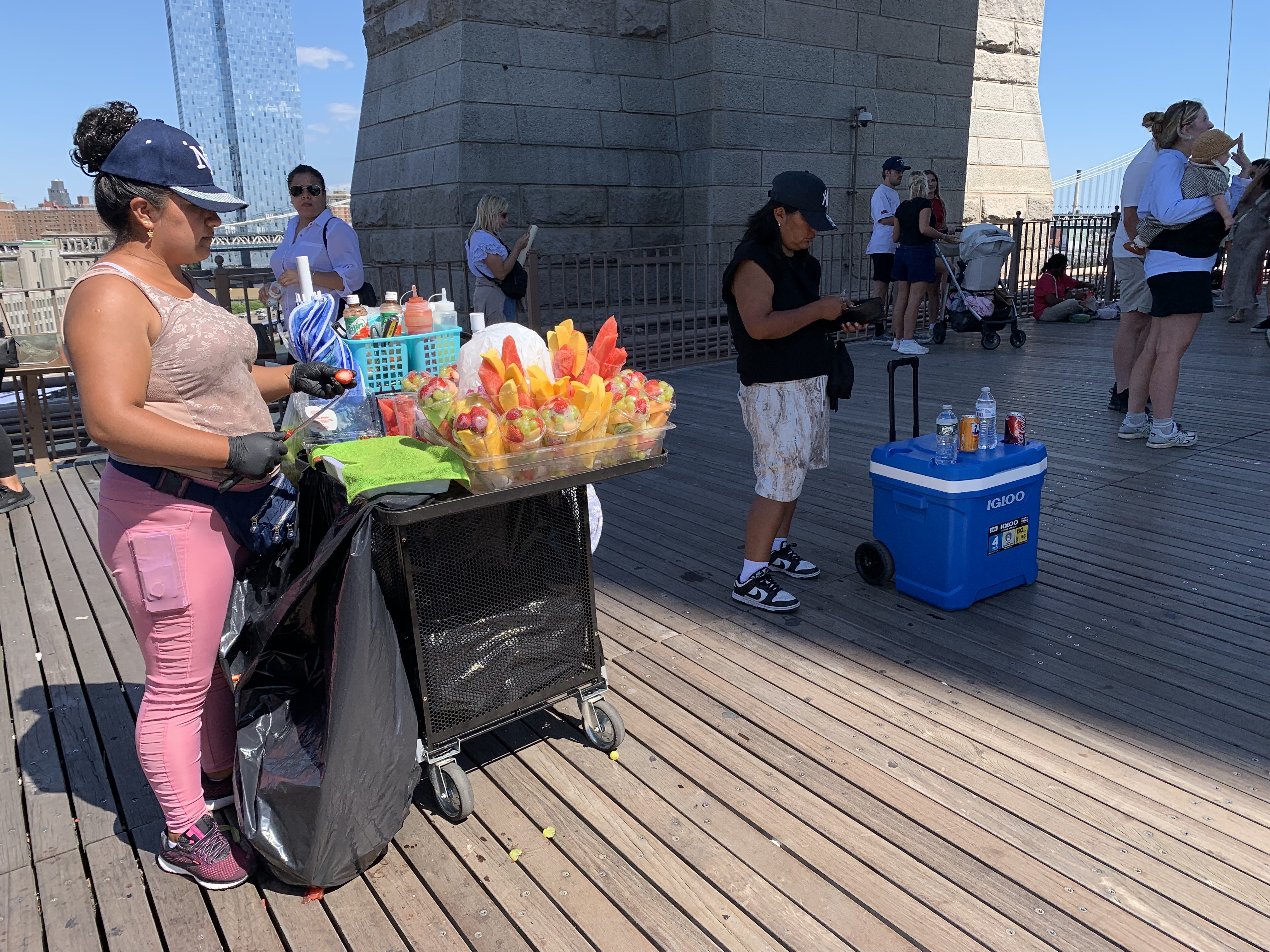
This Senate bill aims to establish a fair and equitable street vending license program in the city, prohibiting the restriction or capping of the number of street vendor licenses. The bill also codifies the city’s current policy of having the Department of Consumer and Worker Protection (DCWP) enforce street vendor law instead of the NYPD.
“I have been very critical of law enforcement being moved from the sanitation police to the NYPD, because that means that accountability comes in the form of criminal summonses instead of civil summonses,” Ramos said. “Unlike civil summonses, criminal tickets are reflected on the vendor’s immigration record. So, when they go to the immigration for an interview, if they’ve received tickets from the NYPD for street vending, that eventually can contribute to an order of deportation.”
Under the alternative, with the Department of Sanitation, or maybe even the Department of Health, enforcing a ticket, there is the possibility to hold the street vendor accountable to follow the city regulations, without impacting their immigration record.
“It’s not that we don’t want accountability, it’s that we want to make sure that honest work is not the grounds for separating families,” Ramos said.
Lifting the cap on vendor permits will not only benefit the lives of thousands of immigrants but also support the economy of the Big Apple. The New York City Independent Budget Office estimates about $59 million as net tax revenue for the city to profit from issuing vendor permits to all the street vendors on the waiting list. “This can help fund a lot of the things we need or even cover some of the holes that are left by funding cuts from the Trump administration. I think helping these businesses be legalized within the law would actually be a boon for the economy in more than a few ways.” adds Ramos.
Besides the economic concerns, several policymakers have raised concerns regarding the elimination of cap, which includes: impact on quality of life and increase of workload for mandatory food inspection and training. There is a long list of rules and regulations monitoring where, when and how street vendors can operate their business like only on sidewalks that are 12 ft or wider, which is less than 20% of New York sidewalks.
“These regulations also hold them accountable in order to maintain the permit and not risk getting revoked for violating them,” Kaufman-Gutierrez said. “Our policy makers who say that this will open the flood gates and fill our streets with vendors, they must look at the current situation as the flood gates are already open, and that we need to bring people into a system of compliance, implementing regulation and order and offering stability for these small businesses.”.
There is a rise of concerns on the enforcement of immigration laws from the federal government and the manner in which it’s being conducted. With armed officers approaching vendor carts to check their documentation status and enforce tickets, the street vendors are frightened to make a living from vending.
“In the eyes of the federal government, being brown, having an accent, speaking another language besides English account for vulnerable identities in risk in this political environment,” Kaufman-Gutierrez said.
These identities define the diversity of street vendors, making them a target in today’s political climate. As an immigrant-run industry, 96% of vendors account for being immigrants of different documentation status. Cities that are home to large street vendor populations like LA and Chicago are also experiencing fear and disruption.
“There should never be armed law enforcement officers approaching the street vendors in the name of regulations. How does a restaurant or open dining get regulated? That’s not the NYPD. Street vendors should be regulated like any other small businesses. There’s discrimination and xenophobia baked into the treatment of street vendors and its enforcement in our city laws. We continue to seek to change that narrative.” Kaufman-Gutierrez said.
As the mayoral elections approach, the status of street vendor permits remain an untouched matter as only 43% of the total 23,000 vendors are U.S.-born or permanent residents, making the concerns of less than 1% of the New York City voter population a minority.
“I’m hopeful that the next mayor is someone who is going to be forward-thinking and help create a street vending system that reflects the needs of our century. Because people deserve it, and our economy deserves it.” added Ramos.
